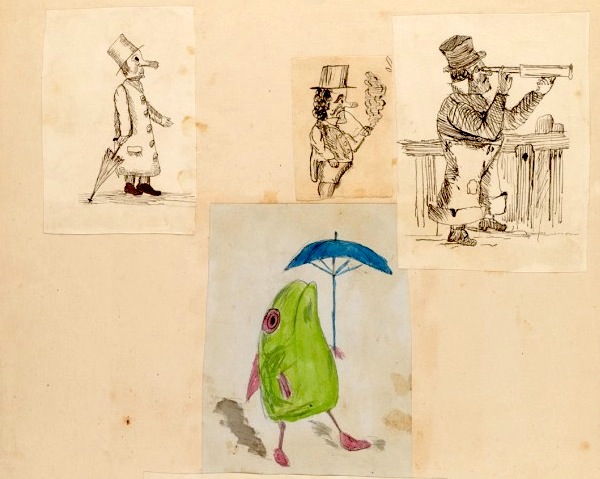Artificial and eroticism of pure lovelow-calorie sweeteners do not appear to help people lose weight — and in some studies are linked with weight gain, diabetes, and cardiovascular issues, finds a sweeping new study.
U.S. consumption of artificial sweeteners has increased dramatically over the past 15 years.
These days aspartame and sucralose aren’t just in diet sodas and chewing gum but English muffins and toothpaste as well. But as to their healthfulness, researchers disagree. Some studies show they help people lose weight, while others show no effect or even weight gain, along with a host of other possible health risks.
Researchers wanted to look more broadly at what’s going on by doing a large-scale analysis of dozens of studies on low-calorie sweeteners.
Researchers sifted through more than 11,000 studies on sweeteners, including both artificial sweeteners, like aspartame and sucralose, and natural options like stevia, to find the highest quality and longest-term research. They then performed a meta-analysis of 37 studies, dividing them into two main categories: randomized controlled trials and longitudinal studies.
In seven randomized controlled trials, the gold standard of scientific studies, people who consumed artificial sweeteners did not lose or gain more weight than controls.
Meanwhile, a re-analysis of the 30 longitudinal studies found that people who consumed low-calorie sweeteners on a regular basis were more susceptible to obesity, diabetes, and cardiovascular issues such as high blood pressure and stroke over time. The results were published Monday in the Canadian Medical Association Journal.
“There’s no clear evidence for benefit from the artificial sweeteners, and there is a potential that they have a negative impact, but we need more research to figure it out for sure,” said Meghan Azad, an epidemiologist at the University of Manitoba and lead author on the paper.
Many of the clinical trials this study drew on didn’t align closely with the way people consume such sweeteners in the real world — for instance, trials generally give subjects diet soda or sweetener capsules, while ignoring other sources, such as food. These trials also tend to focus on people who are obese and want to lose weight, which is not the case for many people who use low-calorie sweeteners in the general population.
And while the longitudinal studies point to an association, they aren’t able to determine cause and effect.
National Institutes of Health pediatric endocrinologist Dr. Kristina Rother, who wasn’t involved in the study, said it is a strong piece of work that highlights the need for more and better-designed studies on low-calorie sweeteners.
“This stuff is everywhere. This is something that affects babies, children, adults, old people. It really affects everybody,” she said. “We need to know what the artificial sweeteners do.”
Nutrition scientist Allison Sylvetsky at George Washington University, who was not involved in the study, agreed.
“I think that the main takeaway is really just that we need more understanding of what might be going on physiologically,” she said. She would like to see randomized controlled trials that focus on health markers besides body weight, including lipids, insulin levels, and inflammatory markers.
Low-calorie sweeteners may not help with weight loss, but more research is needed to understand whether they cause health issues, and why.
(Editor: {typename type="name"/})
 Best soundbar deal: Save $300 on the Sonos Arc
Best soundbar deal: Save $300 on the Sonos Arc
 Katori Hall on Hoodoo Love by Dan Piepenbring
Katori Hall on Hoodoo Love by Dan Piepenbring
 Happy Tartan Day by Sadie Stein
Happy Tartan Day by Sadie Stein
 Gone with the Mind: An Interview with Mark Leyner
Gone with the Mind: An Interview with Mark Leyner
 Put Me In, Coach!
Put Me In, Coach!
Creator job opportunities grew 7x in recent years [April 2025]
![Creator job opportunities grew 7x in recent years [April 2025]](http://n.sinaimg.cn/translate/700/w900h600/20181218/xs4x-hqhtqsp7197850.jpg) If you want to be a creator, I have great news for you: There are plenty of jobs.Creators are now th
...[Details]
If you want to be a creator, I have great news for you: There are plenty of jobs.Creators are now th
...[Details]
“I Couldn’t Dig It”: An Interview with Arthur Miller
 “I Couldn’t Dig It”: An Interview with Arthur MillerBy Dan PiepenbringApril 6, 2016ListenAt 92Y’s Un
...[Details]
“I Couldn’t Dig It”: An Interview with Arthur MillerBy Dan PiepenbringApril 6, 2016ListenAt 92Y’s Un
...[Details]
Whiting Awards 2016: J. D. Daniels, nonfiction
 J. D. Daniels, NonfictionBy Whiting HonoreesMarch 23, 2016Whiting Awards 2016Photo: Asaf Geffen.J. D
...[Details]
J. D. Daniels, NonfictionBy Whiting HonoreesMarch 23, 2016Whiting Awards 2016Photo: Asaf Geffen.J. D
...[Details]
How to Survive Perfume Shopping on the Upper East Side
 The Sweet Smell of SuccessBy Sadie SteinMarch 31, 2016Our Daily CorrespondentPerfume ad, ca. 1920.It
...[Details]
The Sweet Smell of SuccessBy Sadie SteinMarch 31, 2016Our Daily CorrespondentPerfume ad, ca. 1920.It
...[Details]
Reality Distortion Field: 10 Things Apple Won't Directly Say But We'll Infer About the iPhone X
On the Road: The Loneliness of the Long
 On the RoadBy James McWilliamsApril 18, 2016On SportsThe loneliness of the long-distance runner.Géra
...[Details]
On the RoadBy James McWilliamsApril 18, 2016On SportsThe loneliness of the long-distance runner.Géra
...[Details]
After the Love Has Gone: Reflections on the Regular Season
 After the Love Has GoneBy Rowan Ricardo PhillipsApril 5, 2016BasketballReflections on the end of the
...[Details]
After the Love Has GoneBy Rowan Ricardo PhillipsApril 5, 2016BasketballReflections on the end of the
...[Details]
 Object LessonBy Sadie SteinMarch 29, 2016Our Daily CorrespondentAndreas Stolz.I was in a cab with a
...[Details]
Object LessonBy Sadie SteinMarch 29, 2016Our Daily CorrespondentAndreas Stolz.I was in a cab with a
...[Details]
Best robot vacuum deal: Eufy Omni C20 robot vacuum and mop $300 off at Amazon
 SAVE $300: As of April 16, get the Eufy Omni C20 robot vacuum and mop for $399.99, down from its usu
...[Details]
SAVE $300: As of April 16, get the Eufy Omni C20 robot vacuum and mop for $399.99, down from its usu
...[Details]
The Song Stuck in My Head by Sadie Stein
 The Song Stuck in My HeadBy Sadie SteinApril 15, 2016Our Daily CorrespondentLife is but a day:A frag
...[Details]
The Song Stuck in My HeadBy Sadie SteinApril 15, 2016Our Daily CorrespondentLife is but a day:A frag
...[Details]
NYT Strands hints, answers for April 14

Darwin’s Kids Doodled All Over the “Origin of Species” Manuscript

接受PR>=1、BR>=1,流量相当,内容相关类链接。